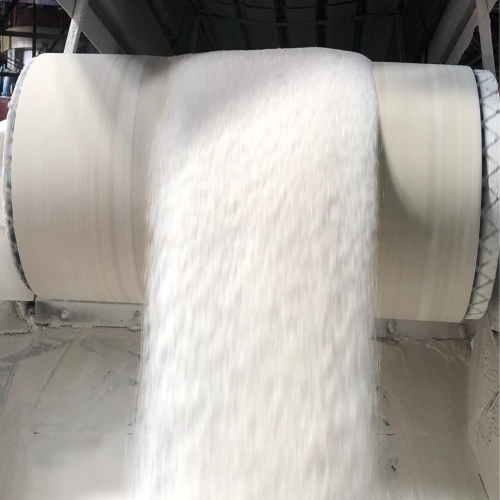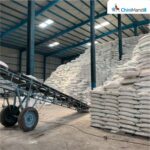Speaking at the 88th Annual General Meeting (AGM) of Indian Sugar Mills Association, President Aditya Jhunjhunwala shared that sugar season 2021-22 was a remarkable year for us.
During AGM, he stressed on increasing sugar prices. Jhunjhunwala said, that the Government introduced Minimum Sugar Price, wherein a price of Rs.29 per kilo was fixed by the Government, and the policy was enormously beneficial for the sugar industry at that time, domestic prices were at multi-level low. Further, the MSP was revised upwards in 2019 and was fixed at Rs.31 per kilo. However, ever since then and it has been almost 3 years that the MSP is static at that rate.
“The Government has increased the cane price FRP. But there has been no corresponding increase in price of sugar. Currently, the average all India ex-mill prices are around Rs. 34 – 35 per kg, which is below the cost of production. Clearly there is a gap, which should be bridged to ensure that there is enough liquidity for the sugar mills, and we are able to make timely payment to farmers,” he said.
“The pet peeve of the sugar industry is the lack of a rationalized and scientific formula to determine the price of cane. Lack of linkage between cane price and sugar price is making cane price unaffordable. Since 2019, the Government has been increasing the cane FRP, which has gone up by almost Rs.30 / quintal. Moreover, there are few States which fix price of cane above the FRP. Such an arbitrary determination of cane price burdens the sugar mills,” Jhunjhunwala stated.
“We feel that in order to make sugar industry future ready, and take on global competition, the time has come to make cane price determination based on market forces. We feel that Government should adopt the Revenue Sharing Formula (RSF), along with Price Stabilisation Fund (PSF) to protect interests of farmers,” ISMA President further added.
“For the very first time, the country achieved 10% ethanol blending, and sugar export have crossed 111 lakh tons. This has been a significant milestone considering that just a couple of years back both ethanol blending and sugar exports were minimal and sugar industry found itself facing ‘problem of plenty’ i.e. surplus sugar stocks, which led to glut in domestic sugar supplies and unremunerative domestic price of sugar,” he said.
The Indian sugar industry has aligned itself to the dream of the Hon’ble Prime Minister to make the country self-reliant in meeting energy requirements, save precious foreign exchange, and most importantly ensure that next generation can breathe in pollution free environment.
The sugar industry is ramping up investments in improvement of cane variety. ISMA believes that sugarcane yields can go up substantially based on available products and data collected by the association.
ISMA is working closely with cane research institutes to develop higher cane yield varieties, which are drought resistant, pest resistant, and can withstand any vagaries of monsoon. Some remarkable progress is being made in identifying certain crop varieties for South India which can give promising yield with less water as well. Besides, ISMA is evaluating certain products and methods which are being developed to improve cane yields and reduce water consumption.
“Higher cane yields will further increase sugar production, wherein more sugar could be diverted towards ethanol production which will help us achieve 20% ethanol blending and beyond,” he said.
ISMA is actively contemplating setting up of green energy hub which constitute of Ethanol, Bio CNG, Bio Energy Charging Stations. To begin with, this could be set up in the factory zone, and later could be expanded to other areas as well. ISMA feels such hub will be one-stop for all green energy and has the potential to gradually transform fuel choices from fossil to green fuel.
Sugar mills are working on projects and evaluating measure by which the waste that is generated from spent wash boilers and also press mud could be used for production of Bio-CNG as well as manure for crop. In addition to that, granulated potash which is derived from molasses is also being used as a crop manure.
Speaking on liquidity challanges, Jhunjhunwala said, “There is an undeniable truth that industry needs cash generation to run its operations. Being an agro-industry wherein 50 million cane farmers and their family are dependent on us, it becomes even more important that we have enough money to run our operations and to make timely cane payment to farmers.”
“However, there are still few policies which needs the support of the Government. We feel that these policies should be relooked at and amended as per the global dynamics which are challenging and demand course correction. The domestic sugar industry has to co-exist with global competition, and therefore policies should be protective to help domestic sugar mills sustain itself in a fast-changing global atmosphere,” he further added.










